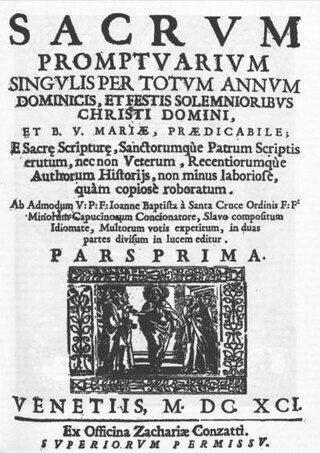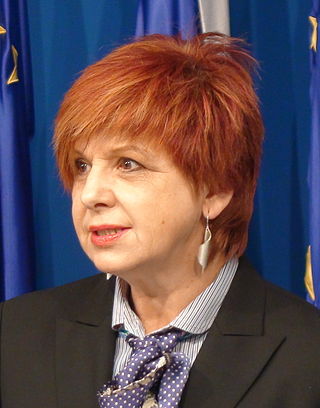The history of Slovenia chronicles the period of the Slovenian territory from the 5th century BC to the present. In the Early Bronze Age, Proto-Illyrian tribes settled an area stretching from present-day Albania to the city of Trieste. The Slovenian territory was part of the Roman Empire, and it was devastated by the Migration Period's incursions during late Antiquity and the Early Middle Ages. The main route from the Pannonian plain to Italy ran through present-day Slovenia. Alpine Slavs, ancestors of modern-day Slovenians, settled the area in the late 6th Century AD. The Holy Roman Empire controlled the land for nearly 1,000 years. Between the mid-14th century through 1918 most of Slovenia was under Habsburg rule. In 1918, most Slovene territory became part of the Kingdom of Serbs, Croats, and Slovenes, and in 1929 the Drava Banovina was created within the Kingdom of Yugoslavia with its capital in Ljubljana, corresponding to Slovenian-majority territories within the state. The Socialist Republic of Slovenia was created in 1945 as part of federal Yugoslavia. Slovenia gained its independence from Yugoslavia in June 1991, and today it is a member of the European Union and NATO.

The Social Democrats is a centre-left and pro-European social-democratic political party in Slovenia led by Matjaž Han. From 1993 until 2005, the party was known as the United List of Social Democrats. It is the successor of the League of Communists of Slovenia. As of 2022, the party is a member of a three-party coalition government with Robert Golob's Freedom Movement alongside The Left, as well as a full member of the Party of European Socialists and Progressive Alliance.
This article gives an overview of liberalism in Slovenia. It is limited to liberal parties with substantial support, mainly proved by having had a representation in parliament. The sign ⇒ means a reference to another party in that scheme. For inclusion in this scheme it isn't necessary so that parties labeled themselves as a liberal party.

Ljubo Sirc CBE was a British-Slovene economist and prominent dissident from Yugoslavia.

Zoran Janković is a Slovenian businessman and politician serving as Mayor of Ljubljana since April 2012. He previously served as mayor from 2006 to 2011.

The Slovene lands or Slovenian lands is the historical denomination for the territories in Central and Southern Europe where people primarily spoke Slovene. The Slovene lands were part of the Illyrian provinces, the Austrian Empire and Austria-Hungary. They encompassed Carniola, southern part of Carinthia, southern part of Styria, Istria, Gorizia and Gradisca, Trieste, and Prekmurje. Their territory more or less corresponds to modern Slovenia and the adjacent territories in Italy, Austria, Hungary, and Croatia, where autochthonous Slovene minorities live. The areas surrounding present-day Slovenia were never homogeneously ethnically Slovene.

Peter Vodopivec is a Slovenian historian and public intellectual.

Peter Štih is a Slovenian historian, specialising in medieval history.

Milan Zver is a Slovenian politician and Member of the European Parliament (MEP) from Slovenia. He is a member of the Slovenian Democratic Party, part of the European People's Party. He is the Vice-President of the Slovenian Democratic Party. He served as Minister of Education and Sports from 2004 to 2008.

Matjaž Šinkovec is a Slovenian diplomat, politician, translator, journalist and science fiction writer. He was one of the co-founders of the Slovenian Democratic Party.

Gregor Virant is a Slovenian politician and public servant. Between 2004 and 2008, he served as Minister of Public Administration in Janez Janša's first government, between 2011–2013 he was Speaker of the National Assembly of Slovenia. He also served as Minister of the Interior and Public Administration in the government of Alenka Bratušek between 2013 and 2014.
Gregor Tomc also known as Grega Tomc is a Slovenian sociologist, musician and activist. In the late 1970s and 1980s, he was the founder and member of the Slovenian punk rock band Pankrti.

Barbara Brezigar is a Slovenian lawyer and politician. She currently serves as Secretary General at the Ministry of the Interior of Slovenia.

Tobia Lionelli was a Slovene–Italian preacher and writer in the Baroque period. His sermons had a crucial role in the affirmation of Slovene as a language. He is also known by his monastic name John Baptist of Sveti Križ in Vipava.

Majda Širca Ravnikar is a Slovenian art historian, journalist and politician. She served as Minister of Culture in the government of Borut Pahor.
Nova revija is a Slovene language literary magazine published in Slovenia.

The 8th Government of Slovenia led by Prime Minister Janez Janša was announced on 3 December 2004. The government was formed after the 2004 Slovenian parliamentary election. It was the first government of Janez Janša, and third centre-right government in the history of the Republic of Slovenia. Slovenian Democratic Party won on the elections 29% of the votes and so became the strongest parliamentary party in the National Assembly. The party nominated Janez Janša as the candidate for the mandatary, who was confirmed by the president Janez Drnovšek. It was one of the most stable governments of Slovenia, which ruled in the times of the greatest economical boom. In 2004–2006, the economy grew on average by nearly 5% a year in Slovenia; in 2007, it expanded by almost 7%. The growth surge was fuelled by debt, particularly among firms, and especially in construction. The price for a boom that veered out of control has been paid in years from 2009 onwards.













